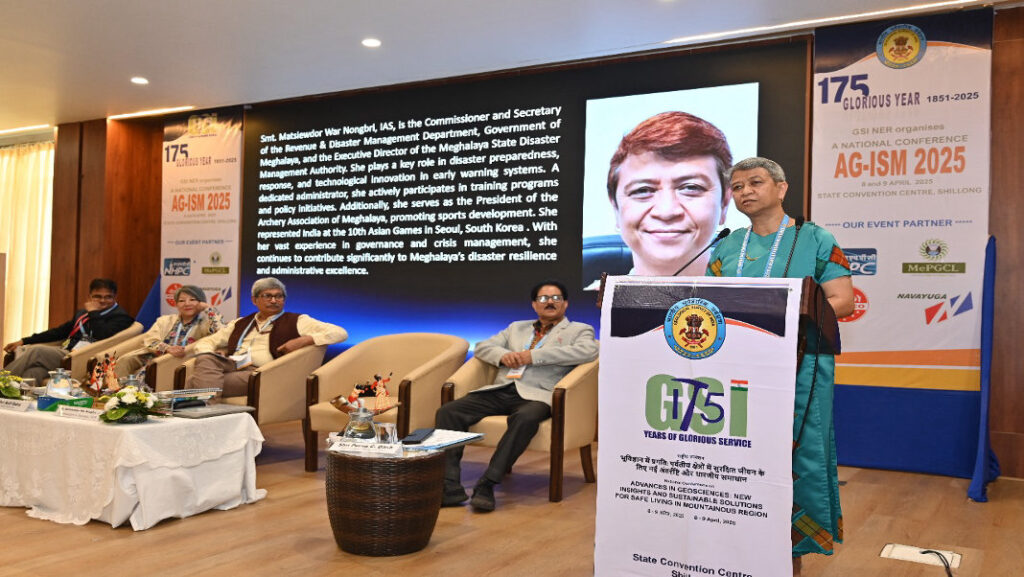Shillong, April 8: India’s mountainous regions can only thrive when policy and development decisions are rooted in scientific know how.
This was the common refrain which emerged out of the national conference on Advances in Geosciences: New Insights and Sustainable Solutions for Safe Living in Mountainous Regions (AG-ISM 2025), at the State Convention Centre in Shillong. The two day conference has been organized by Geological Survey of India. The conference was organized to mark the 175 years of its inception.

Geoscientists, policymakers, and experts deliberated on how scientific advancements can address the pressing environmental and developmental challenges of India’s mountainous regions.
Delivering the inaugural address, Asit Saha, Director General of GSI, underscored the indispensable role of geosciences in shaping climate-resilient infrastructure and disaster preparedness. He stressed that integrating geoscientific expertise into national and regional planning is crucial for ensuring safe and sustainable development. “Geosciences have a direct impact on the safety and livelihoods of people living in mountain regions. Whether it’s assessing earthquake risks or managing natural resources, science must guide our decisions,” he said.

Matsiewdor War Nongbri, Secretary to the Government of Meghalaya, speaking as the Guest of Honour, highlighted the need for science-driven policymaking in the Northeast, a region prone to geological and climatic vulnerabilities. “Scientific data should be at the core of our infrastructure and environmental planning,” she said, urging stronger collaboration between research institutions and the government.
Imtienla Ao, Deputy Director General of Forests, Government of Meghalaya, in her address as the Special Guest, emphasized the synergy between geosciences and environmental conservation. She pointed out that understanding the region’s geological features is essential for balancing ecological preservation with resource management. “Conservation efforts must be guided by geological insights to ensure both environmental protection and resource sustainability,” she noted.

The conference reinforced the importance of interdisciplinary collaboration among geoscientists, engineers, and policymakers to develop practical solutions for mountain communities vulnerable to landslides, earthquakes, and other natural hazards. “Building climate resilience in these regions is not just a scientific challenge—it’s a governance priority.”
AG-ISM 2025 features multiple technical sessions on sustainable resource management, geotechnological applications, climate action, and geoheritage conservation. Young geoscientists from across India showcased their research on disaster risk reduction and environmental monitoring. A special field visit to Meghalaya’s key geological sites is scheduled for April 10, alongside an exhibition celebrating GSI’s 175-year legacy.
Also Read: Conrad slams HYC protest at NEIGRIHMS, calls disruption of hospital operations “unacceptable”
Also Watch
Find latest news from every corner of Northeast India at hubnetwork.in, your online source for breaking news, video coverage.
Also, Follow us on-
Twitter-twitter.com/nemediahub
Youtube channel- www.youtube.com/@NortheastMediaHub2020
Instagram- www.instagram.com/ne_media_hub
Download our app from playstore – Northeast Media Hub





